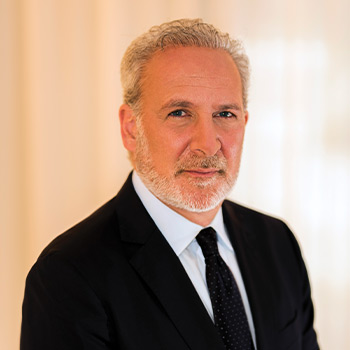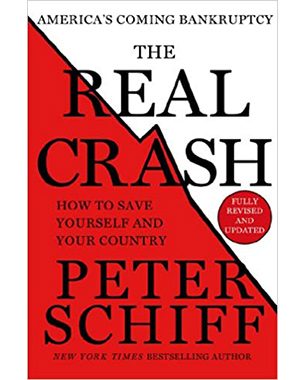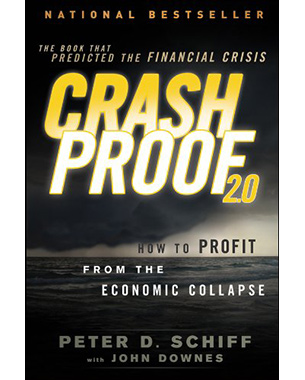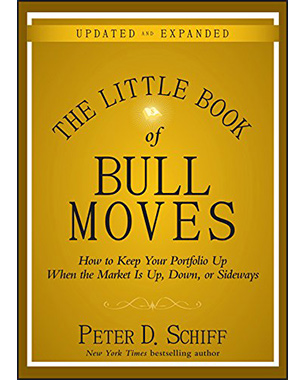Follow
About Peter
Peter Schiff is one of the few widely known economists and investment professionals to have spoken about the financial crisis before it began. He is a widely followed opponent of debt-fueled growth policies and is known for his advocacy for emerging market and commodity-focused investments in countries with positive fiscal characteristics.
Peter's Videos
At MoneyShow Orlando, Peter Schiff: on gold, the dollar and dividend-paying global stocks. Gold thrives in rising inflation, falling financial asset prices, falling bond prices, deficits.
At MoneyShow Orlando, Peter Schiff: the stock market bubble has finally burst. What can you do next? Are rising bond levels the pin that's going to prick this market bubble?
At MoneyShow SF, Peter Schiff sees ahead: We are in a lot of trouble. We are in a big fat ugly bubble. It hasn't gotten any better since Trump was elected. It's going to pop under his watch
Peter Schiff: "The problems I saw leading up to the financial crisis of 2008-9 are dwarfed by the problems now. I'm here at the MoneyShow to tell people how to profit on events about to unfold."
Peter's Books
Peter Schiff
The Real Crash: America's Coming Bankruptcy - How to Save Yourself and Your Country
You might be thinking everything’s okay: The stock market is on the rise, jobs are growing, the worst of it is over. You’d be wrong. In The Real Crash, New York Times best-selling author Peter D. Schiff argues that America is enjoying a government-inflated bubble, one that reality will explode... with disastrous consequences for the economy and for each of us.
Peter Schiff
Crash Proof 2.0: How to Profit From the Economic Collapse
The economic and monetary disaster which seasoned prognosticator Peter Schiff predicted is no longer hypothetical-it is here today. And nobody understands what to do in this situation better than the man who saw it coming. For more than a decade, Schiff has not only observed the economy, but also helped his clients restructure their portfolios to reflect his outlook.
Peter Schiff
The Little Book of Bull Moves, Updated and Expanded: How to Keep Your Portfolio Up When the Market Is Up, Down, or Sideways
In The Little Book of Bull Moves, popular author and economic advisor, Peter Schiff, takes a new look at America's bull markets of the 1920's, 1960's, and 1990's, and the bear markets that followed. Analyzing similarities and differences from both an economic and political perspective, Schiff discusses investment strategies that worked then and explains how those same conservative approaches to investing can be applied in today's market.








